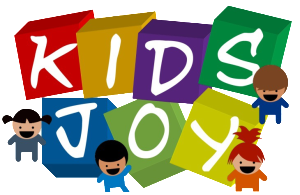As parents, we strive to provide the best for our children, and praise is a powerful tool in our parenting arsenal. When used correctly, it can boost self-esteem, foster motivation, and cultivate a positive mindset. However, it’s crucial to recognize that misguided praise can have unintended negative consequences, such as unrealistic expectations, dependence on external validation, diminished effort and persistence, and even inflated self-esteem. To harness the true power of praise, it’s essential to understand how to offer it in the right way. In this blog post, we will delve into the significance of effective praise for preschoolers and share practical tips to help you master the art of praising your little ones.
Genuine and Specific Praise:
When praising your preschooler, it’s crucial to be genuine and specific. Instead of using generic statements like “Good job!” or “Well done!”, try to be more specific and descriptive about their accomplishments. For example, you can say, “You did an excellent job sharing your toys with your friend. That was very kind and thoughtful of you.” This type of specific praise highlights the exact behavior or action you are acknowledging and encourages them to continue displaying positive behaviors.
Focus on Effort and Improvement:
Instead of solely focusing on the end result, emphasize the effort and improvement your child puts into their tasks. Praising their hard work, persistence, and problem-solving skills teaches them that success is not solely determined by the outcome but also by their dedication and growth. For instance, you could say, “I noticed how you kept trying different strategies to solve that puzzle. Your perseverance paid off, and you did it!”
Encourage Independence and Autonomy:
Praising your preschooler for their independence and autonomy can foster a sense of confidence and self-reliance. Acknowledge their achievements when they complete tasks on their own, such as dressing themselves, cleaning up their toys, or using manners during mealtime. By saying, “I’m proud of you for putting on your shoes all by yourself. You’re becoming more independent every day,” you reinforce their capabilities and encourage them to take on new challenges.
Be Mindful of the Process:
Praise is not just about the end result; it should also celebrate the process. Recognize the small steps and milestones your child achieves along the way. For instance, if they are learning to write their name, commend their progress by saying, “I see you’re practicing your letters, and you’ve made great improvement in forming the letter ‘A’. Keep up the good work!” Focusing on the process builds resilience and a growth mindset by showing that progress is valuable, regardless of perfection.
Encourage a Growth Mindset:
When praising your preschooler, it’s essential to promote a growth mindset. Instead of praising intelligence or innate abilities, focus on their efforts, strategies, and problem-solving skills. For example, saying, “You showed great creativity in finding different solutions to that building block challenge. Your problem-solving skills are impressive!” fosters a belief that they can learn, grow, and overcome obstacles through effort and persistence.
When utilized thoughtfully, praise can be a powerful tool in nurturing preschoolers’ self-esteem, motivation, and positive outlook on life. By offering specific, authentic, and balanced praise, we empower our children to embrace challenges, develop intrinsic motivation, and strive for personal growth. Let us remember the importance of effective praise as we support our little ones on their journey of self-discovery, creating an environment that celebrates their achievements while fostering continuous learning and development.


Recent Comments